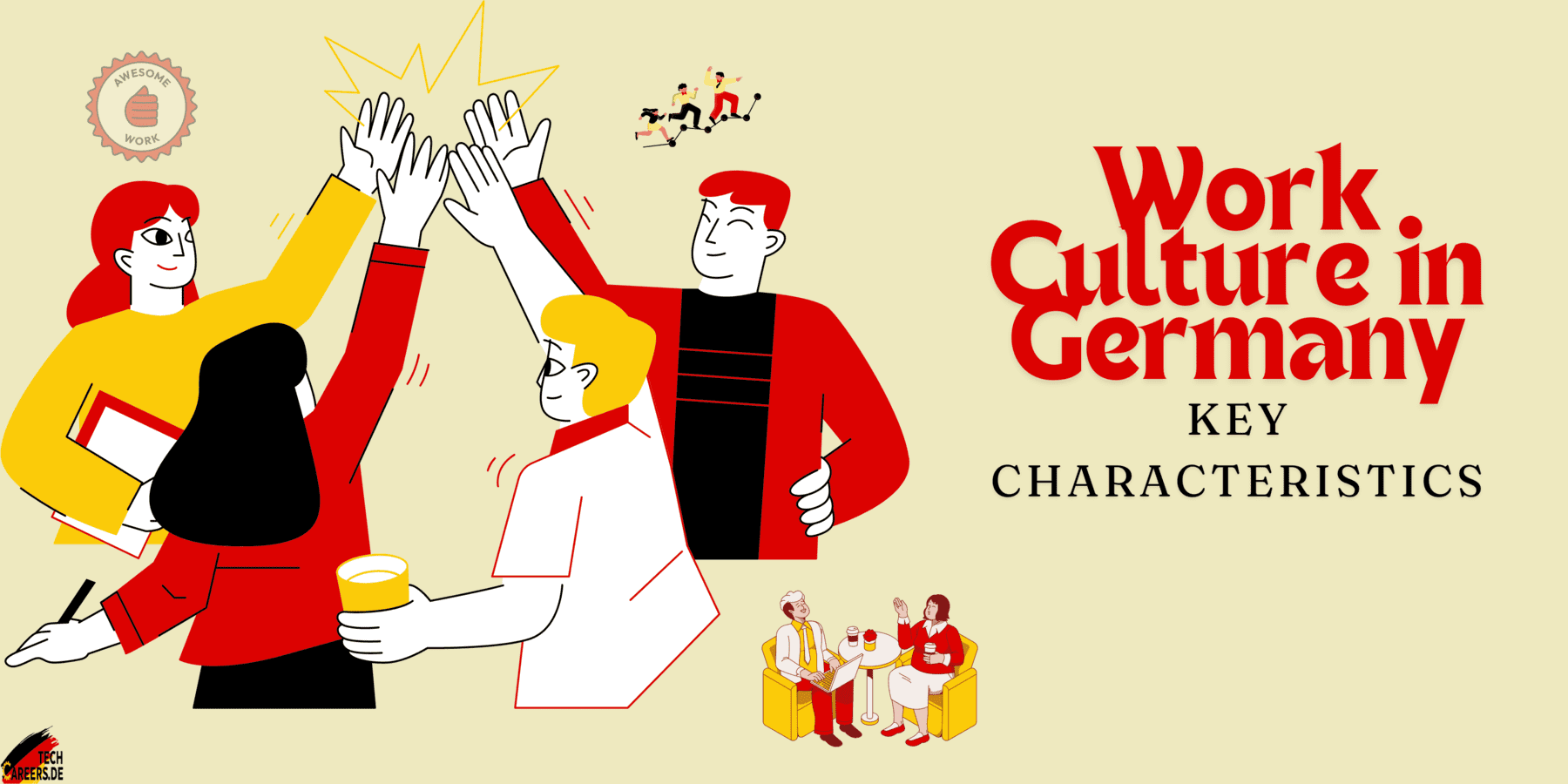
Understanding the German Work Culture
The work culture in Germany is intricately defined by a set of values and practices that prioritize precision, discipline, and orderliness. These characteristics not only make Germany a formidable economic power but also shape the day-to-day working environment in ways that can be quite distinct from other cultures. Understanding this work culture is essential for both domestic and international professionals who are navigating the German job market, especially those seeking top IT jobs in Germany.
Punctuality and Efficiency
A quintessential trait of German work culture is punctuality. In Germany, being on time is considered a fundamental aspect of professional life. Meetings start exactly when scheduled, and deadlines are taken very seriously. This punctuality is intertwined with a broader cultural emphasis on planning and organization. Projects are often meticulously mapped out with clear objectives and timelines, reflecting a pervasive preference for order and predictability.
Efficiency is another pillar of the workplace in Germany. There is a strong focus on creating processes that allow for maximum productivity within the designated working hours. Unlike cultures where the workday might blur into personal time, in Germany, there is a clear delineation between work and leisure, which helps maintain high levels of productivity during work hours. This structured approach to work makes Germany an appealing environment for fields that require a high degree of precision and discipline, such as IT. In fact, the demand for IT professionals in Germany is continuously growing, with the best tech jobs Germany often featuring roles in software development, system architecture, and cybersecurity, which all benefit from the rigorous, methodical work style that typifies German industry.
Formality and Direct Communication
Formality is a significant aspect of professional interactions in Germany. It is customary to use surnames and titles unless a close working relationship has been established. This formality is mirrored in communication styles, which are typically direct and to the point. In German business culture, there is little room for ambiguity; statements and requests are clearly formulated, and feedback, whether positive or negative, is given directly and honestly. This level of straightforwardness is intended to avoid misunderstandings and increase efficiency, but it may require some adjustment for professionals from cultures where indirect communication is the norm.
Work-Life Balance
Despite the seriousness with which Germans approach their work, there is a strong national emphasis on work-life balance. Laws regulate working hours and overtime, ensuring that employees are not overburdened. Most professionals work between 35 and 40 hours per week, and there are generous provisions for holidays and leave, including parental leave. The separation between professional and personal life is strictly maintained, and after hours, employees are generally free from work responsibilities, including communications like emails or calls. This distinct separation helps maintain a healthy balance, reducing burnout and increasing overall job satisfaction.
Understanding the nuances of work culture in Germany is crucial for anyone looking to thrive in its workforce, particularly in high-demand sectors like IT. As Germany continues to lead in technological advancements, recognizing and adapting to its work culture can be a significant advantage for IT professionals aiming to secure roles at the forefront of innovation and development.
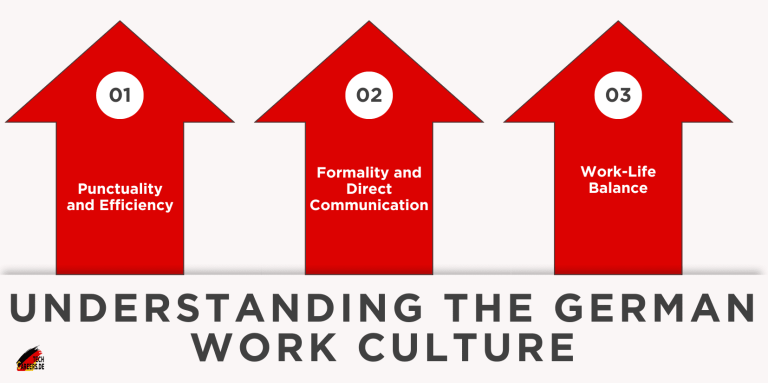
German vs American Work Culture
When comparing German vs American work culture, several distinct differences become apparent, each reflective of broader societal values and business practices. These differences can significantly impact how professionals approach their work, interact with colleagues, and balance their personal and professional lives. Understanding these differences is crucial for anyone considering a job offer Germany or the US, as it can help set the right expectations and aid in smoother cultural integration.
Work Environment and Flexibility
Aspect | German Work Culture | American Work Culture |
Work Hours | Strictly regulated; typically 35-40 hours per week. | More flexible, often exceeding 40 hours per week. |
Flexibility | High level of structure, with less room for deviation. | Greater flexibility in scheduling and work arrangements. |
Professionalism | Formal attire and conduct in the workplace. | Casual dress and demeanor are more common. |
In Germany, the work environment is characterized by a high degree of structure and adherence to regulations. Work hours are strictly maintained with clear boundaries between personal and professional time. This structure supports a high level of productivity during designated work times but allows little flexibility compared to the American system.
In contrast, American work culture often values flexibility and adaptability. Work hours can be longer and more unpredictable, with a significant emphasis on achieving results, even if it means staying late or working weekends. This flexibility extends to workplace attire and interactions, which tend to be more informal and casual than in Germany.
Approach to Entrepreneurship and Innovation
Germany’s approach to innovation is meticulous, with a strong emphasis on thoroughness and precision. New ideas and projects are usually extensively vetted before implementation. This methodical process ensures stability and quality but can slow down the innovation speed.
In America, there is a stronger entrepreneurial spirit that encourages risk-taking and fast-paced development. This environment is conducive to rapid innovation and startup culture, where failure is often seen as a stepping stone to success.
Work and Personal Life Separation
Germans strongly value separating their professional and personal lives. It is uncommon to bring work home or to continue working after business hours, which is reflected in labor laws that protect personal time.
Conversely, in the United States, it’s not unusual for employees to work outside normal business hours. The blending of work and personal life is more accepted, and in some industries, it’s expected that employees remain accessible or continue working after the day ends.

Key Sectors and Employment Opportunities in Germany
Germany’s robust economy offers diverse opportunities across multiple sectors, making it an attractive destination for professionals worldwide. Understanding the Germany work culture and recognizing the main industries thriving in this environment is crucial for those considering career opportunities in the country.
Thriving Industries in Germany
Germany’s economy is well-known for its strong engineering sector, which includes automotive, mechanical, and electrical engineering. These industries benefit from Germany’s high standards in education and training, as well as its meticulous attention to quality and precision—characteristics that are integral to what is German work culture like.
The country is also a leader in renewable energy, which is growing due to the national commitment to sustainability. This industry offers opportunities for innovation and growth, particularly for professionals involved in green technology, renewable energy systems, and sustainability projects.
Additionally, Germany’s IT sector is booming. The demand for skilled professionals in software development, cybersecurity, and IT project management is high. Understanding how is German work culture can give candidates a significant advantage. In Germany, IT roles often require not only technical expertise but also an appreciation for the structured, rigorous approach that German companies favor.
Top IT Jobs in Germany
As digital transformation accelerates globally, Germany’s need for IT professionals continues to grow. Top IT jobs in Germany include:
- Software Developers: Proficiency in software engineering with a focus on industrial applications is highly sought after.
- Cybersecurity Specialists: Given Germany’s emphasis on precision and efficiency, cybersecurity roles are crucial in protecting data and systems.
- IT Project Managers: Individuals who can manage projects effectively within the structured German work environment are in demand.
These roles are supported by Germany work culture, which values thoroughness, precision, and efficiency, making it an ideal environment for professionals who excel in highly organized settings.
Navigating the Job Market
For those looking to secure employment, understanding how is German work culture plays a pivotal role in successful integration into the workplace. Networking, showcasing technical and linguistic proficiency, and understanding the formalities of German business etiquette can significantly enhance one’s chances of securing a position.
Proficiency in German, while not always mandatory, can be a crucial advantage, particularly for communication within the company and integration into the work culture. For higher positions or roles in smaller towns, German language skills are often essential.
Explore German Opportunities!
Dive into the unique aspects of German work culture that promotes precision and work-life balance, and take the first step towards securing a flourishing career in Germany’s leading industries like IT and engineering.
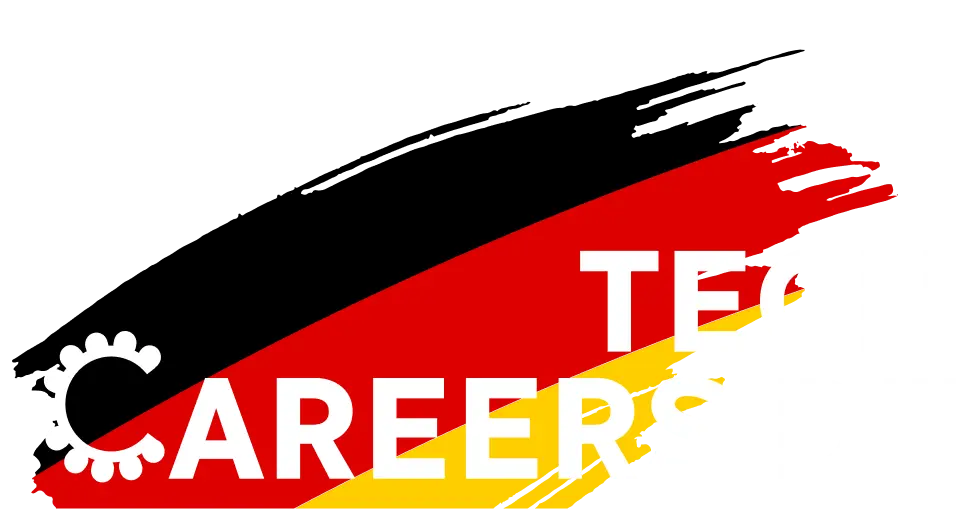
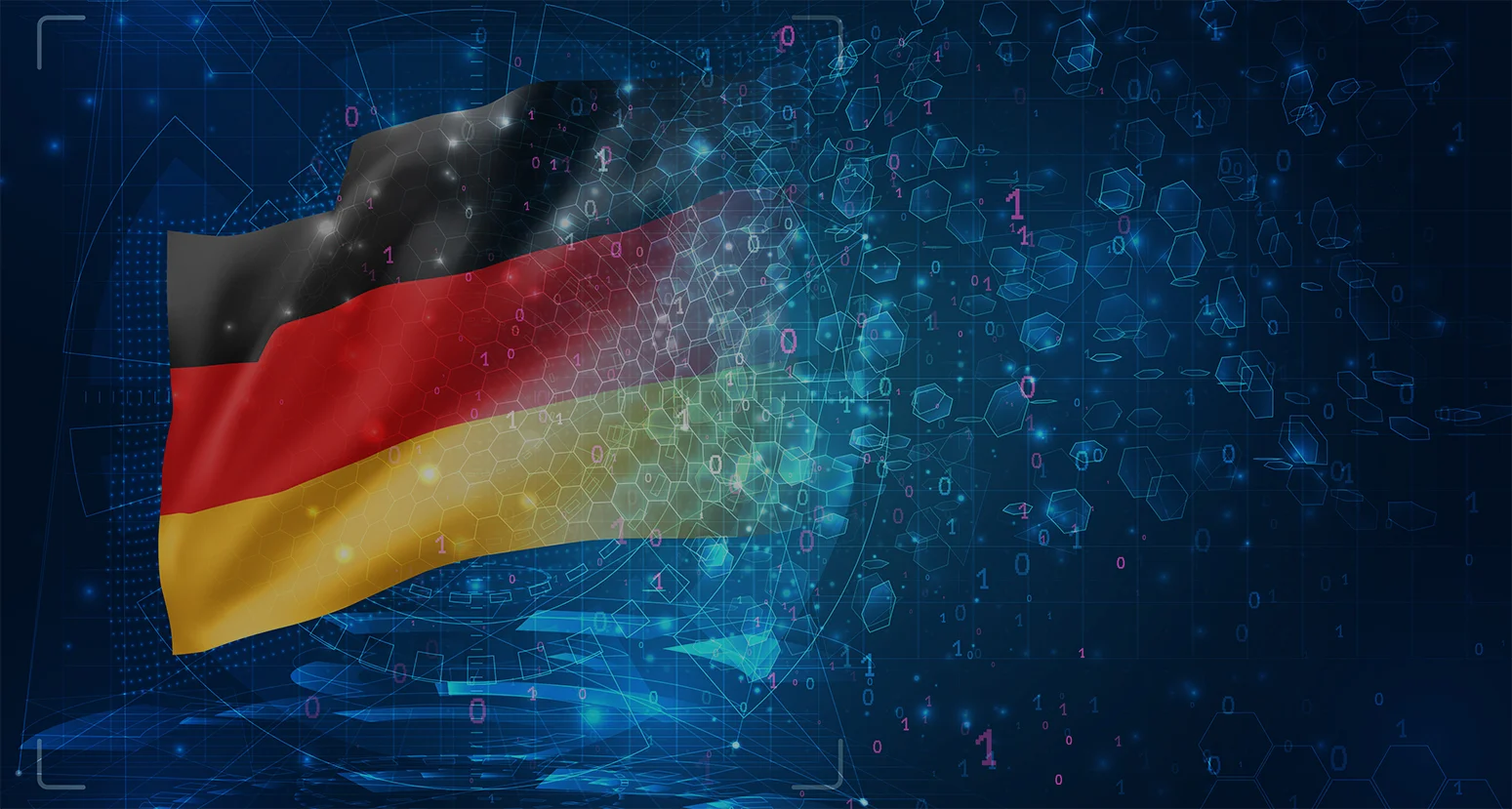



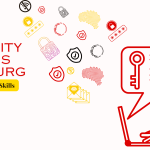 Previous Post
Previous Post Next Post
Next Post